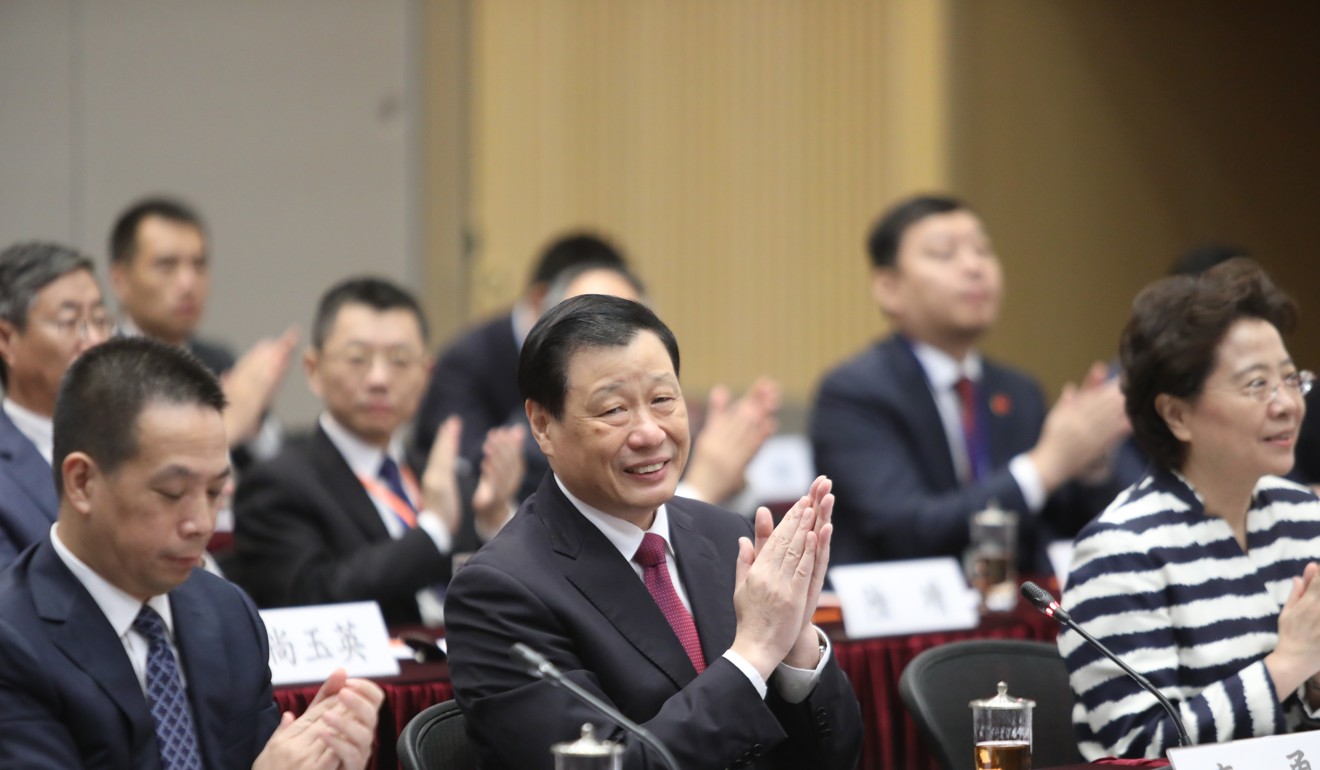
Hong Kong and Shanghai leaders pledge to deepen cities’ ties and drive China growth amid US trade war
Top officials witness signing of 15 agreements to promote their respective businesses, collaborate in cultural activities and improve access to each other’s financial markets

Hong Kong and Shanghai will deepen ties to drive growth in China and further open up the country, the cities’ leaders pledged on Friday, putting aside their traditional rivalry to navigate uncertainties thrown up by the escalating trade war with the United States.
Chief Executive Carrie Lam Cheng Yuet-ngor and Shanghai mayor Ying Yong witnessed the signing of 15 agreements to promote the cities’ businesses, collaborate in cultural activities, improve access to each other’s financial markets, create an alliance between their respective universities and boost interaction between young people, among other things.
They also confirmed that a “Hong Kong Week” would be held in Shanghai next year, followed by a “Shanghai Week” in Hong Kong in 2020
Three local opposition lawmakers – Ip Kin-yuen, Dennis Kwok and Kenneth Leung –accepted the chief executive’s invitation to attend the signing ceremony and luncheon, which included about 150 guests including pro-establishment politicians and business leaders.

But the trio sought to play down their presence and said they were only there as part of their job.
Asked if their presence showed their camp’s relationship with Lam had improved, Kwok said people should not read too much into it.
Hong Kong and Shanghai ... are important windows for the opening up of our country
“We’ve been very closely following a lot of issues touching on economic development and professional services development,” said Kwok, who represents the legal sector.
At a conference before the ceremony attended by 70 officials from both sides, Lam said the two cities should work more closely to “serve the nation’s needs and contribute to the country’s development”.
“Hong Kong and Shanghai, each with its distinct advantages, are important windows for the opening up of our country,” she added. “We should cooperate in a closer and deeper manner.”
Citing the stock connect scheme launched in 2014 to link Hong Kong’s stock exchange with Shanghai’s, Lam argued the two cities’ stronger cooperation “would not be a zero-sum game”.
In the last five years, the number of Hong Kong investment projects in Shanghai increased from 22,000 to 29,000, she said, while the number of Shanghai companies listed in Hong Kong grew from about 80 to more than 110.
Shanghai, a cosmopolitan city of about 24 million people, has long been viewed as challenging Hong Kong’s status as China’s top international financial centre.
But the two cities have forged closer ties in recent years, especially after Beijing last year endorsed the “Greater Bay Area” project to transform Hong Kong and 10 neighbouring cities into an economic powerhouse to rival Silicon Valley.
In the last few decades, China’s growth has been driven by three megacity clusters – Hong Kong and the Pearl River Delta; Shanghai and the Yangtze River Delta; and the Beijing-Tianjin-Hebei region – fuelling its push for more integration across cities.
During the luncheon, Ying quoted the lyrics of the theme song of a classic Hong Kong TV series called The Bund, broadcast in 1980, about gangsters in 1920s Shanghai.
“Shanghai-Hong Kong’s cooperation will continue to flow like a restless river,” he said.
Andrew Yao Cho-fai, a Hong Kong deputy to the National People’s Congress – the country’s legislature – believed there was “competition and synergy” between the two cities as well as room for cooperation.
“Hong Kong is more internationalised [than Shanghai], and draws tech companies from around the world as it protects intellectual property rights very well,” Yao said, adding that companies would also be enticed to do business in Shanghai due to its market of more than 100 million people in the Yangtze River Delta.
Kenny Chien Kwok-keung, chairman of the Hong Kong Software Industry Association, said both cities had become more attractive to businesses amid the US-China trade war.
“Some software companies had planned to get listed [in New York], but because of the trade war they are considering Hong Kong.”